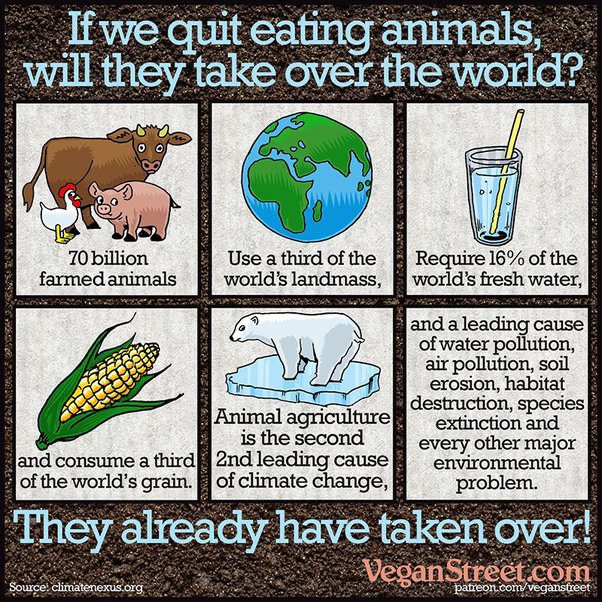In a world increasingly characterized by environmental degradation and climate perturbation, the dietary choices humans make are intimately intertwined with ecological sustainability. Among the myriad lifestyles available to the contemporary individual, vegetarianism emerges as a choice often heralded as exemplary in reducing one’s carbon footprint. However, the question remains: is being a vegetarian genuinely environmentally friendly, or does this dietary regime veil a complex tapestry of ecological implications?
The appeal of vegetarianism is akin to the siren song of a tranquil lake, suggesting that abstaining from meat can yield both personal health benefits and a boon for the planet. As the metaphor suggests, the surface appears serene, but a deeper exploration reveals currents that may undermine such assumptions. This article will delve into the multifaceted relationship between vegetarianism and environmental sustainability, unraveling the threads that bind dietary choices to planetary health.
To embark on this inquiry, let us first consider the environmental ramifications of animal agriculture. The production of meat is notoriously resource-intensive, requiring vast tracts of land, copious amounts of water, and significant fossil fuel inputs. Livestock farming is a significant contributor to greenhouse gas emissions, accounting for approximately 14.5% of the global total. These emissions mainly stem from methane produced during digestion and manure decomposition, alongside carbon dioxide and nitrous oxide released from various farming practices. Consequently, transitioning away from meat consumption, whether through vegetarianism or reduced meat intake, could ostensibly mitigate these damaging emissions and curtail deforestation needs.
Moreover, the cultivation of plants for human consumption tends to demand fewer resources compared to meat production. Pursuing a vegetarian diet can diminish the necessary agricultural footprint by favoring crops that can be cultivated for direct human consumption. In essence, shifting from livestock to plant-based food sources is akin to transforming an expansive, draining tidal marsh into a thriving, resource-efficient ecosystem. Such a transition may not only spare forests and wetlands from conversion to agricultural lands but also promote biodiversity, enhancing the resilience of ecosystems.
However, as we traverse deeper into this discourse, the notions of sustainability and environmental friendliness cannot be reduced merely to the binary of meat versus vegetables. The impact of a vegetarian diet is contingent on myriad factors, including agricultural techniques, transportation methods, and geographical location. For instance, a diet rich in industrially farmed produce, laden with pesticides and fertilizers, may yield environmental detriments comparable to or surpassing those of meat-centric diets. The monoculture practices prevalent in modern agriculture often lead to soil degradation, loss of biodiversity, and increased reliance on chemical inputs, all of which may betray the altruistic aims of vegetarianism.
Furthermore, the carbon cost associated with transporting plant-based foods can offset the benefits gained from reduced livestock emissions. An avocado cultivated in a far-flung tropical locale and transported thousands of miles can contribute more to one’s carbon footprint than a locally sourced piece of meat. Thus, the environmental friendliness of vegetarianism must be scrutinized through a nuanced lens, accounting for the entire supply chain from farm to table. A hyper-local, sustainable agriculture model may offer a counterbalance, potentially rendering the vegetarian option vastly more sustainable than its less conscientious counterpart.
In considering the breadth of dietary implications, it is also crucial to contemplate the cultural and socio-economic contexts that underpin food choices. The strict adherence to vegetarianism may not be feasible or beneficial for all populations. For some communities, especially those in regions where arable land is constrained or ecological conditions are harsh, livestock may provide essential nutrition, economic livelihood, and cultural significance. Thus, the pivot to vegetarianism, while seemingly advantageous in specific contexts, cannot be universally applied without acknowledgment of the deeply entrenched societal fabric that influences dietary habits.
The ethical dimensions of vegetarianism, particularly when perceived through an environmental lens, generate yet another layer of complexity. Advocates argue that reducing meat consumption aligns with animal welfare principles, suggesting that compassion towards sentient beings forms an essential cornerstone of environmental responsibility. Nevertheless, this rationale intersects uncomfortably with the realities of food production. Industrial agriculture practices often exploit the very animals termed ‘humane’; thus, ethical vegetarianism becomes embroiled in philosophical questions about animal rights versus environmental stewardship.
To summarize this inquiry, the proposition of vegetarianism as an unequivocal panacea for environmental woes is fraught with ambiguity. While it may potentially reduce some ecological footprints and inspire movements towards sustainable practices, it is critical to explore the nuances of agricultural methodologies, transportation logistics, local contexts, and ethical frameworks. One must tread carefully, recognizing that a single dietary choice does not exist in a vacuum but rather as part of the intricate web of interdependent choices that chain together human existence and ecological vitality.
In conclusion, embracing vegetarianism can indeed serve as a vital step towards fostering environmental sustainability. Yet, one must remain vigilant and well-informed, weaving personal dietary choices into a broader narrative of environmental stewardship, socio-economic justice, and ethical consideration. Rather than casting vegetarianism as a definitive solution, it should be viewed as part of a multifaceted approach wherein informed and conscious choices contribute to the healing of our planet, resonating harmoniously with the diverse tapestry of life that it sustains.










